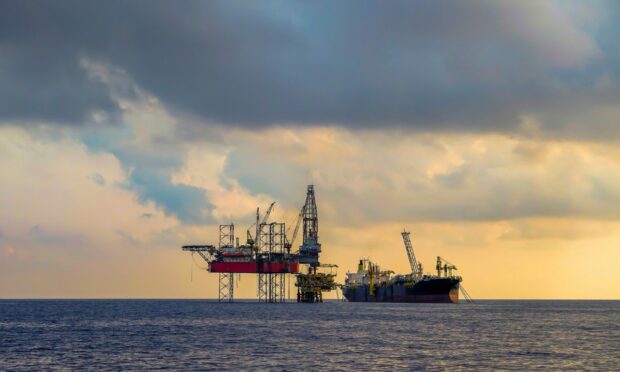Sir, – Congratulations to Katy Heidenreich for her factual and sensible article on the necessity of developing new oil and gas fields to achieve our green targets.
In total, 73% of UK energy comes from oil and gas, as does 91% of our heating.
Our domestic oil and gas production will decline very rapidly if new and existing fields are not developed, while imported oil and gas will increase at the same rate to cover essential demand during what is likely to be two decades of transition.
Imported product is very unlikely to be supplied under the strict environmental regulations imposed on our domestic production and therefore unlikely to be more carbon friendly.
Is it possible that the SNP, the Greens and Westminster really believe that we will achieve carbon neutrality quicker and more cleanly by importing the oil and gas we are able to produce locally?
Shell’s withdrawal from the Cambo Field development was most likely due to the increased cost of production complying with costly regulations, combined with future uncertainty making further investment inadvisable.
These cost factors will have a devastating effect on smaller independent operators who are struggling to maintain sustainable cash flow.
The cost of wholesale gas will continue to escalate with devastating effect on domestic users.
We need to move on from the naive and criminal view that carbon produced outwith the UK for products we consume doesn’t count for our footprint.
Pointing sanctimoniously at China’s carbon footprint is hypocritical considering that much of their production is exported and transported worldwide.
Unfortunately, our respective governments have set us on an economically disastrous and environmentally negative path that will result in the loss of potentially 100,000 direct and supply chain jobs while dramatically increasing the current £7 billion cost of covering our escalating domestic energy deficit.
Clive Doney, South Headlands Crescent, Newtonhill.
It looks like it is business as usual
Sir, – It struck me that it is business as usual for the oil industry on reading The P&J supplement, Energy Voice (January 3).
The articles mentioned a host of new wells being commissioned.
Perhaps I imagined the COP26 Conference? Was it a dream?
Also it appears that gas has been imported for many years from Norway, Belgium and Russia. Liquid gas has also been imported from the Middle East for years, so how come the oil industry is now trumpeting that we need to use our own home-sourced natural gas?
Are the pipelines from Norway and Belgium to England being closed?
I was also informed by a Knight of the Realm no less, before Indyref 1, that oil was finished as far as the North Sea was concerned so an independent Scotland would be a fiscal basket case.
Is it any wonder that it is difficult now to believe the members of OGA and oil business leaders who are in complete denial of the ruination of this planet for future generations.
Get real! This is not a race to extract as much as you can – it is a case of producing what we really require. The OGA report in September stated current reserves of North Sea oil and gas would last to 2030.
Peter Macari, Bieldside, Aberdeen.
Saddened by news of former teacher
Sir, – I was saddened to read of the death of local author David Northcroft.
David was my 5th-year English teacher at Aberdeen Grammar School in 1967 when he began his education career.
I remember him as a “cool” teacher as he used Catcher in the Rye by JD Salinger as our study book, a radical choice at the time.
I can only imagine what my parents would have thought, had they known.
I can do no better than quote one of my classmates who remarked on hearing of his death that “he was one of life’s good guys”.
Keith Robertson, Kingussie.
